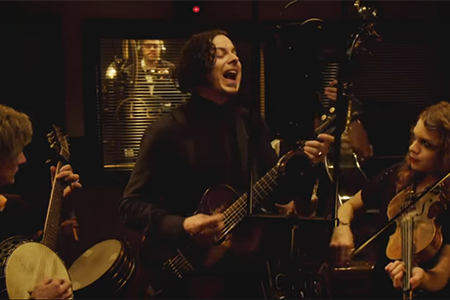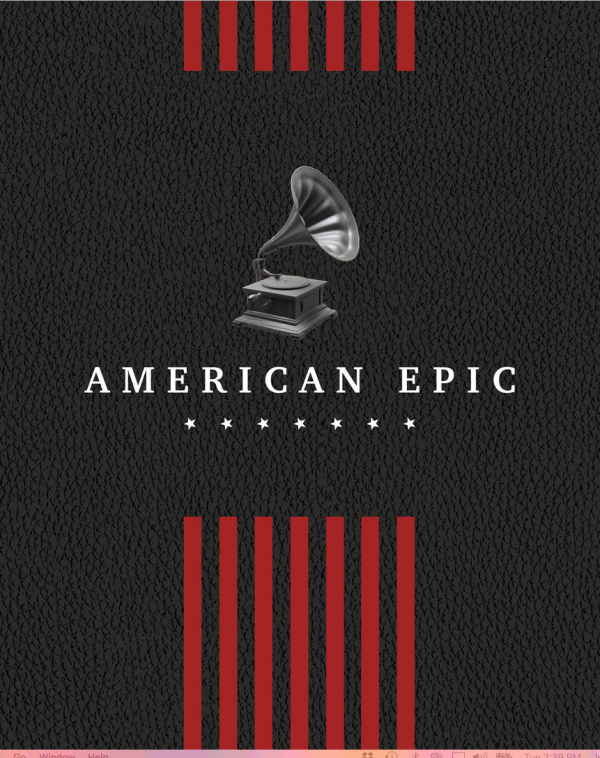 BY JAMES M. DAVIS At the birth of the Internet, David Bowie famously remarked that soon music would be like “running water.” Everywhere, inescapable, available at the touch of a button. Any song from the entire history of recorded music, available at your fingertips, on your smartphone, anywhere you go. This is the world we live in now, and for me personally, it’s difficult to remember a time even when hearing a certain song meant having to go out and buy a CD. Farther back still is the time when hearing obscure music meant finding a dusty old record in a yard sale, or paying some incredible sum of money at an auction. But where PBS’s new documentary three-part series American Epics begins is before even then, when those dusty records were brand new. A time when, for vast parts of America, the only way to listen to music was to hear it performed live. Having musical talent made you an asset to your community. The first episode, which airs tonight at 9 pm, opens with the story of the Carter Family, detailing how Sara Carter could draw a crowd just by beginning to sing from her porch. It’s difficult to imagine a world where entertainment was hard to come by, and also to recognize this world as the beginning of our own.
BY JAMES M. DAVIS At the birth of the Internet, David Bowie famously remarked that soon music would be like “running water.” Everywhere, inescapable, available at the touch of a button. Any song from the entire history of recorded music, available at your fingertips, on your smartphone, anywhere you go. This is the world we live in now, and for me personally, it’s difficult to remember a time even when hearing a certain song meant having to go out and buy a CD. Farther back still is the time when hearing obscure music meant finding a dusty old record in a yard sale, or paying some incredible sum of money at an auction. But where PBS’s new documentary three-part series American Epics begins is before even then, when those dusty records were brand new. A time when, for vast parts of America, the only way to listen to music was to hear it performed live. Having musical talent made you an asset to your community. The first episode, which airs tonight at 9 pm, opens with the story of the Carter Family, detailing how Sara Carter could draw a crowd just by beginning to sing from her porch. It’s difficult to imagine a world where entertainment was hard to come by, and also to recognize this world as the beginning of our own.
American Epic tells the story of these people, American folk artists who worked so hard on their craft out in the middle of nowhere, only to be scooped up by the beginnings of the record industry. These people were given bus fare so that, for the first time in their lives, they could leave their towns and go to New York, to the 22nd floor of some skyscraper so that electrical engineers in lab coats could record their  music and sell thousands of copies of it. American Epic tries to live entirely in this single moment in history, when the phonograph was just becoming widely used. It’s the moment of discovery, after which what is discovered can never remain the same. Its Schrodinger’s cat writ large. The most heartbreaking example of this is in the final episode, detailing how the Hopi people began to promote their own sacred dances as entertainment for white people. How after hundreds of years of tradition, what had been a central part of the community became a curio, practically overnight.
music and sell thousands of copies of it. American Epic tries to live entirely in this single moment in history, when the phonograph was just becoming widely used. It’s the moment of discovery, after which what is discovered can never remain the same. Its Schrodinger’s cat writ large. The most heartbreaking example of this is in the final episode, detailing how the Hopi people began to promote their own sacred dances as entertainment for white people. How after hundreds of years of tradition, what had been a central part of the community became a curio, practically overnight.
For anyone interested in the history of American music, American Epic is essential viewing. It removes the sense of old-timey music being the realm of beard scratching intellectuals and reminds us that these people were real, and that at the time their music was marketed and promoted just like popular music today. The way we listen to music now is utterly different, we live in a world of technology and leisure. But we are fundamentally still the same combination of soul and body that we were a hundred years ago, and listening to music from that time, understanding stories from the past, can remind us of that fact.
PART 1 OF PBS’ THREE-PART AMERICAN EPIC DEBUTS TONIGHT @ 9 PM

